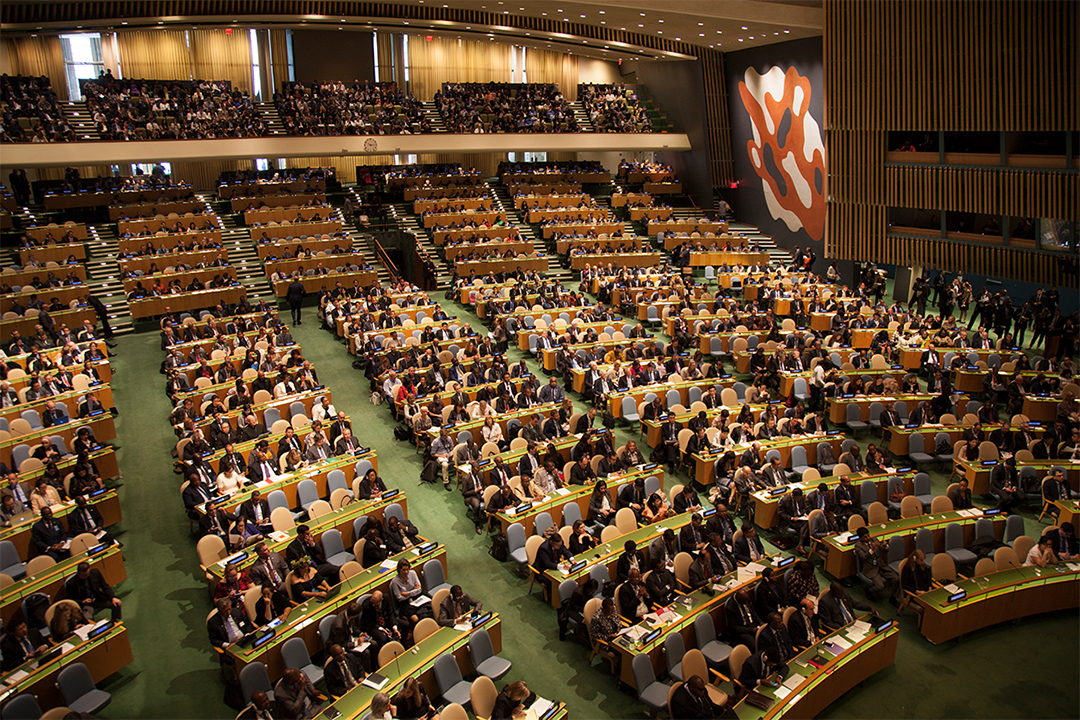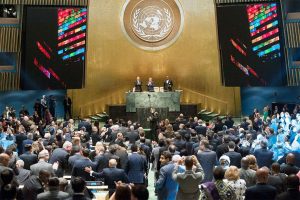This September, world leaders will be gathering at the United Nations to take stock of the first four years of implementation of the 2030 Agenda for Sustainable Development and its Sustainable Development Goals (SDGs). This will be the first time since its establishment in 2015 that Heads of State and Government will be reflecting on the advances, opportunities and lessons learned in making this ambitious global framework a reality.
The UN Department of Economic and Social Affairs (UN DESA) is planning a number of initiatives to ensure that a wide range of stakeholders is engaged in meaningful ways in this important stocktaking opportunity, and that the process is informed by good practices about SDG implementation.
Tracking SDG Implementation
During the past three years, the SDGs have mobilized governments all over the world as well as partners from civil society, academia, the private sector, the philanthropic community, local and regional governments and many others, all committed to contributing to achieving the global goals for all. At UN DESA, we have been promoting and tracking partnerships towards the implementation of the SDGs, including through a global registry of voluntary commitments and multi-stakeholder partnerships.
As of January 2019, 4,082 partnerships and commitments are registered, and 596 progress reports have been sent. From those, 1,690 commitments – more than 40% – address SDG 14 (conserving and sustainably using the oceans, seas and marine resources for sustainable development), a direct outcome of the UN’s 2017 Oceans Conference.
Recording UN System SDG Actions
The UN System has also been contributing to the implementation of the 2030 Agenda, and this is highlighted in an online database administered by UN DESA. So far, 41 UN entities have shared information on their actions, initiatives and plans on SDG implementation.
The database contains information on decisions or new strategies taken by intergovernmental bodies to guide the implementation of the 2030 Agenda and the SDGs, specific actions and initiatives by UN family entities, including their contributions to the UN’s High-level Political Forum on Sustainable Development (HLPF), convened by the UN Economic and Social Council (ECOSOC) each July. The database also allows for searching collaborative initiatives by UN organizations and their support to countries related to the 2030 Agenda and the SDGs.
Identifying Good Practices
As we prepare for the Heads of State meeting on the SDGs in September 2019, UN DESA has launched another initiative, to collect examples of good practices, success stories and lessons learned in SDG implementation. We are looking for inspiring breakthroughs and success stories from governments, UN entities, international and regional organizations as well as major groups and other stakeholders that are showing results and impacts.
Submissions can be shared through a web-based portal until 28 February 2019. The submissions will be analyzed by a dedicated inter-agency team coordinated by UN DESA, and the results will be made available online for easy access and broad dissemination. Where applicable, the submissions will serve as inputs to thematic preparations for the July 2019 session of the HLPF.
We are hopeful that the submission, collection, analysis and dissemination of good practices, success stories and lessons learned will help galvanize the momentum for the next cycle of SDG implementation and inspire Member States in their preparation for the high-level events of September. We count on partners to contribute their good practices and innovations to help us understand where we stand, where we need to go, and how to get there.
* * *
This article was written by Lotta Tahtinen, Chief, Outreach and Partnerships Branch, Division for Sustainable Development Goals (DSDG), UN Department of Economic and Social Affairs (UN DESA).

